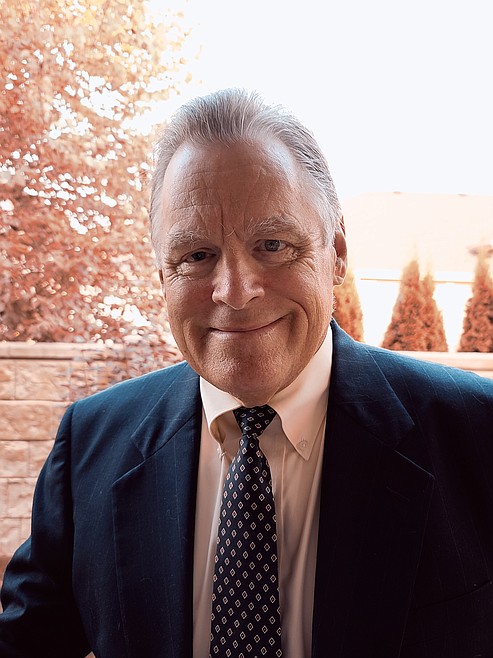Op-Ed: Bedke, Giddings have eyes on bigger things
The primary election race for lieutenant governor amounts to more than who Idaho Republicans want in the No. 2 position of state government, although that is an important thing to consider.
The bigger issue is that the primary race will determine who voters want as our next governor in four years. Will it be Rep. Pricilla Giddings of White Bird, or House Speaker Scott Bedke of Oakley?
This assumes that Gov. Brad Little will win re-election and not seek a third term – and, of course, there never are guarantees in politics. At this point, Little appears to be on track for defeating Lt. Gov. Janice McGeachin. She has former President Trump’s endorsement, but he has not held rallies on her behalf or issued negative comments about Little. She has strong support from the GOP’s right wing, but has made little effort to expand her base.
If this were a normal year, when top elected officials in Idaho tend to be anointed rather than elected, you’d say that Bedke has paid his dues and that it was his time to move into the lieutenant governor’s office. Don’t expect anything flashy if he’s elected. He’d do what the Constitution prescribes – presiding over the Senate when the Legislature is in session and quietly serving as “acting governor” when Little is out of the state. He’d also be an asset for the administration, opposed to a liability.
But there’s nothing “normal” about this election cycle with a fireball like Giddings in the mix. If she wins, expect her to carry on with what McGeachin started – calling out the governor for his “liberal” ways and labeling as “RINOs” the Senate’s president pro tem and other legislators who get low ratings on the Idaho Freedom Foundation scorecard.
Essentially, you could expect her to spend four years campaigning for the state’s highest office. If she gets to the governor’s chair, she would be the first woman to be elected to that position. Some would argue that she would be the first libertarian to win the office.
Do not under-estimate Giddings. She’s smart – a commodity not always found in politics. Her supporters are not consumed by her well-documented fallouts with Bedke over the years, ethics issues with fellow House members or publicly doxing a rape victim. To her supporters, she’s a “principled conservative” and that’s all that matters. She wants to put government on a diet, starting with repeal of the state’s grocery tax.
As a governor, don’t expect Giddings to have any kind of cordial relationship with the media – as other governors have had. Don’t expect the usual news conferences before, during or after legislative sessions. She has made it clear that she doesn’t have a high regard for the mainstream (liberal) media. But to Giddings’ core supporters, who also have a long-standing hate affair with the media, Giddings would provide the kind of leadership Idaho needs.
For Bedke, he’d also use four years as lieutenant governor as an audition for the governorship, but it would be more in a traditional fashion. More than likely, he’d be a working partner for the Little administration – as Little was to Gov. Butch Otter during his time as lieutenant governor. By the end of Bedke’s term, the governor likely would raise Bedke’s profile with an “important” assignment or two.
If Bedke gets to the governor’s chair, he’d be in the line with the likes of Little, Otter and Dirk Kempthorne – all of whom boasted about being conservative, but with a pragmatic side to governing.
The race for lieutenant governor is a classic clash between a fixture of the political establishment (Bedke) and a rebel (Giddings) who wants to put state government on a much different course.
Can she win this race? Absolutely … if the outcome is based on hard work and ability to rally supporters. If it comes down to money, and a stretch-run advertising blitz, then Bedke seems to have a sizeable advantage.
Chuck Malloy is a long-time Idaho journalist and columnist. He may be reached at ctmalloy@outlook.com

